The Connection Between Mindfulness and Peaceful Parenting

Introduction The present-day parenting of the modern world may be overwhelming, especially in the course of meeting the daily chores, emotional control, and meeting the needs of a child. Peaceful parenting does not mean finding some quick fixes to our issues- it is a journey of building a mental existence in our minds and in our families. Mindfulness as the conscious parent learns is the secret of responding and not reacting to difficult times and creating a place of safety, empathy and respect. Being a well-established child development professional who provides my services to families in the USA, I would support the benefits of mindful parenting as life-changing. As a part of this blog, I will discuss how the secret to harmonious relationships, healthy children, and family harmony is mindfulness. 1. Mindful Parenting Enhances Emotional Regulation Kids Need One of the most noticeable consequences of mindfulness is that it may help control the emotions of a person, not only in the parents but in children as well. Self-reflection and sleep are ways of daily life that can allow parents to address stressful toddler behavior in a non-stressed fashion. Children grow well in harmonious families where giant emotions are handled with patience, insight and instruction. Mindfulness also increases the ability of a parent to implement positive techniques of punishing toddlers- creating pleasant boundaries that instruct, rather than reprimand. Such thoughtful approaches yield sense of security, and confidence over time and this allows children to be emotionally street smart throughout their lives. 2. Family Meetings and Active Listening Parenting Promote Connection Mindfulness of parenting will start by being a full presence- listener; listening and affirming the voice of every group member. The connection of this nature is offered due to frequent family meetings. These meetings facilitate the free dialogue of emotions, difficulties and rules even on an informal level. Parenting at home through active listening enables parents to exhibit empathy and respect, a factor that reduces conflict and leads to increased trust. Listening actively assists the children to share and strengthen self-esteem and instills discipline as a team effort rather than a contention. 3. Holistic Child Development Is Fueled by Mindfulness Whole child development and mindfulness are similar. Peaceful parenting is not merely a behavior, as it builds all of the child developmental facets, such as emotional, cognitive, social, and moral. Parents should choose toddler activities that facilitate mindful engagement (outdoor play, meditation, or storytelling) to help children develop curiosity and compassion. Besides, parents can apply mindfulness to strengthen conscious co-parenting, increasing awareness of partnership, communication, and shared goals for the family’s well-being. It is a unified practice, which keeps the stress level under control, since there is harmony in life above individual interaction. Conclusion: Unlock Peaceful Parenting Through Mindfulness Mindfulness is not an objective but a habit that you practice on a daily basis and this transforms the parental experience. The awakening of awareness and emotional control and bonding will allow the parents the keys of peaceful parenting to every member of the family. One of the ways to start practicing these conscious steps is to research my expert resources, consultations, and courses aimed at helping every modern family on its mindful path. Don’t forget to follow me on Instagram, and YouTube. for motivation and practical parenting tips. Hack: Have a conscious morning every morning- inhale two times and make a purpose- take about a calm, interrelating day. You can find our recent news and updates in the latest press releases. My project, Vedangi Brahmbhatt, helps modern families discover peace through mindfulness. Explore my courses, books, and personalized service to your mindful parenting process visit vedangibrahmbhatt.com.
Self-Care for Conscious Parents: Why You Can’t Pour from an Empty Cup

Parenting is an unwavering journey that’s full of joy, trials and deep connections. Yet too often, parents – especially those striving to be the conscious parent – neglect their own well-being in the process, leading to burnout and exhaustion. The truth is, you’re not able to pour from an empty cup. Prioritising self-care is not selfish; it is an essential foundation for mindful parenting, Emotional Regulation Kids, and family harmony. Vedangi Brahmbhatt, a trusted Child Development Specialist, supports parents across the USA in embracing self-care practices that nourish the whole family system. This blog will share why self-care is important, ways to integrate it into your life in meaningful ways, and the positive impact it has on your kids. Self-Care Builds Your Ability to Parent Mindfully Mindful parenting requires patience, presence, and emotional regulation – all things that are hard to accomplish when running on empty. Taking time to recharge physically, emotionally, and mentally reestablishes your capacity to engage in Active Listening Parenting and respond thoughtfully, not react impulsively. Simple rituals including meditation, gentle exercise, or quietly reading (perhaps from one of the Best Parenting Books) increase calmness. When you care for yourself, you strengthen the foundation to implement Positive discipline strategies for toddlers effectively and compassionately. Modelling Healthy Habits Supports Holistic Child Development Children learn by example. When they witness parents pushing their own self interests, they learn valuable lessons about self-respect, balance, and emotional strength. This supports Holistic Child Development – nurturing emotional, social, cognitive, and physical growth. Incorporating Toddler Activities that encourage independence also allows parents designated rest and self-care moments. Through Family Meeting and open communication, families can create shared agreements that support everyone’s needs, cultivating an environment for healing and growth. Self-Care Allows Us to Consciously Co-Parent and Communicate When parents are feeling balanced, communication is improved, to benefit the whole family. Embracing conscious co-parenting with partners gets easier to do as stress and overwhelm dissipate. Parents can practice more effective Nonviolent Communication: creating security and trust. Regular check-ins, such as Family Meeting, create space to express feelings and adjust routines, supporting both parental well-being and children’s ability to regulate emotions. Managing your energy ensures the provision of a more loving and supportive home for your child’s flourishing. Conclusion: Fill Your Cup to Feed Your Family Self-care is an act of empowerment that’s essential in the mindful and intentional parenting journey. Taking care of yourself improves your relationship with your child and helps you have the clarity and compassion to navigate the ups and downs of parenting. For customised advice on How to implement conscious parenting techniques at home and conscious co-parenting, consult with Vedangi Brahmbhatt. Don’t forget to follow us on Instagram, and YouTube for more insight and practical tips about living mindfully as a family. Here’s a tip: schedule some short daily moments for yourself, even if just five minutes, to breathe deeply and reset your mindset. There is a profound difference in making a difference. For the latest in news and updates, please click here to access our recent press and news. At Vedangi Brahmbhatt, we believe taking care of yourself is what fuels your children’s growth. Visit vedangibrahmbhatt.com to view courses, Best Parenting Books, and consultations that nurture mindful thriving families, while embracing the Benefits of mindful parenting for child development.
Understanding Triggers And Why It’s Such An Important Part Of Parenting
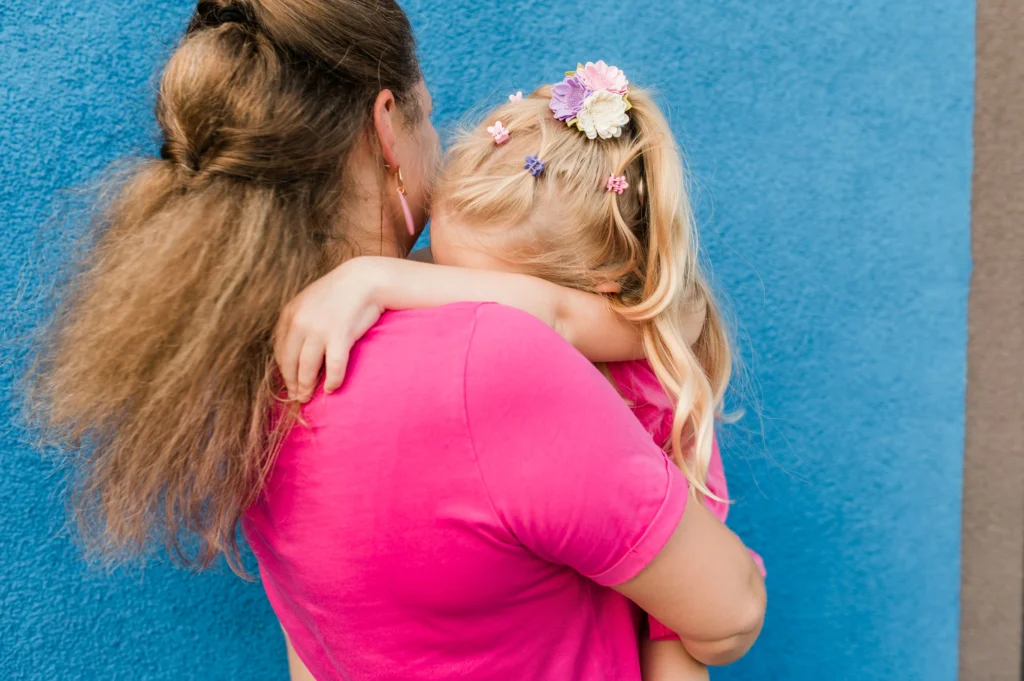
Triggers are emotional responses due to unresolved past woundedness or stresses (often resulting in exaggerated responses to basic parenting issues). For instance, a tantrum by a toddler may elicit out-of-proportion frustration that harkens back to your childhood. By developing self-awareness through practices like mindful parenting and Active Listening Parenting, you can identify these triggers before they escalate. This insight aids in changing responses to thoughtful reactions, setting a calmer tone and modelling Emotional Regulation Kids for your child. Using Nonviolent Communication to Respond, Not React When triggered, parents can unintentionally speak in ways that escalate conflicts, rather than resolving them. Employing Nonviolent Communication helps to express feelings and needs without blame or judgment. For instance, instead of reacting with anger to a toddler’s misbehaviour, calmly stating your concern and setting clear boundaries aligned with Positive discipline strategies for toddlers encourages cooperation and respect. Creating Supportive Family Structures with Family Meeting and conscious co-parenting Parental triggers may be reduced by developing strong family systems. Holding regular Family Meeting enables everyone, including children, to share their feelings, voice concerns, and devise solutions together. Additionally, practising conscious co-parenting helps to ensure consistent support and communication between caregivers, reducing stress triggers and reinforcing stable environments for kids’ Holistic Child Development. Conclusion: Master your Triggers to Embrace Empowered Parenting Awareness and management of your triggers are transformative for peaceful parenting and nurturing Emotional Regulation Kids need. For personalized strategies, connect with Vedangi Brahmbhatt’s expert consultations designed to help families thrive through conscious co-parenting and mindful parenting techniques, including How to implement conscious parenting techniques at home. Don’t forget to follow us on Instagram, and YouTube for regular insights and tips on Toddler Activities. Vedangi Brahmbhatt brings deep knowledge and heartfelt direction to empower parents on their journey. Visit vedangibrahmbhatt.com to browse courses, Best Parenting Books, and consultations designed to help families maintain healthy growth, while embracing the Benefits of mindful parenting for child development.
The Role of Inner Child Healing for Conscious Parenting

Parenting is one of the greatest catalysts for personal growth, a journey in which healing your inner child is as important as nurturing your own child. The conscious parent understands that unresolved wounds from their own childhood can influence how they respond to their children. For parents all throughout the USA who are looking for connection and mindful family living, embracing inner child healing brings profound transformation for both generations. Vedangi Brahmbhatt, an experienced Child Development Specialist and advocate for mindful parenting, emphasises integrating inner healing with How to implement conscious parenting techniques at home. This holistic approach aids Emotional Regulation Kids, enhances bonds, and fosters healthier family environments. Understanding the Inner Child’s Role in Parenting Patterns Our inner child carries memories, emotions, and beliefs established during early experiences. Without healing these parts, parents can unconsciously repeat patterns of behaviour sometimes harshly setting limits, struggling with regulation, or avoiding conflict out of fear. Understanding the influence that your inner child has on your parenting helps break these cycles. Through practices often accompanying the conscious parent teachings, such as Active Listening Parenting and Nonviolent Communication, healing creates space for empathy and patience, enriching both your growth and your child’s development. Healing the Inner Child Aids in Emotional Regulation Kids When parents attend to their own emotional wounds, they are better equipped to help with Emotional Regulation. Kids need to thrive. Healing cultivates calm and self-awareness, which models resilience and emotional intelligence for children. This aligns with Holistic Child Development principles that nurture the whole child emotionally, socially, and cognitively. As parents heal, they create safer environments for children to explore emotions securely, strengthening cooperation and attachment key Benefits of mindful parenting for child development. Strengthening Family through conscious co-parenting and Family Meeting Inner child healing also improves relationships within the family system. Couples who practise conscious co-parenting with healing awareness foster compassionate and consistent communication, reducing conflicts that affect children. Using Family Meeting to openly discuss feelings and expectations encourages openness and participation. These tools, inspired by mindful parenting, build environments where families can co-create respect, understanding, and collective healing. Conclusion: Embracing Inner Child Healing to Change Your Parenting Journey Understanding and nurturing your inner child is critical to becoming the conscious parent you aspire to be. It helps dismantle toxic patterns, manage emotions healthily, and develop heart-centred relationships within your family. For customised advice, you can consult with Vedangi Brahmbhatt or explore resources such as the Best Parenting Books, courses, and consultations to support your journey. Don’t forget to follow us on Instagram, and YouTube for more inspiration on Toddler Activities, mindful parenting, and child development.
Why Parenting Is About You, Not Just Your Child: A Conscious Parenting Perspective
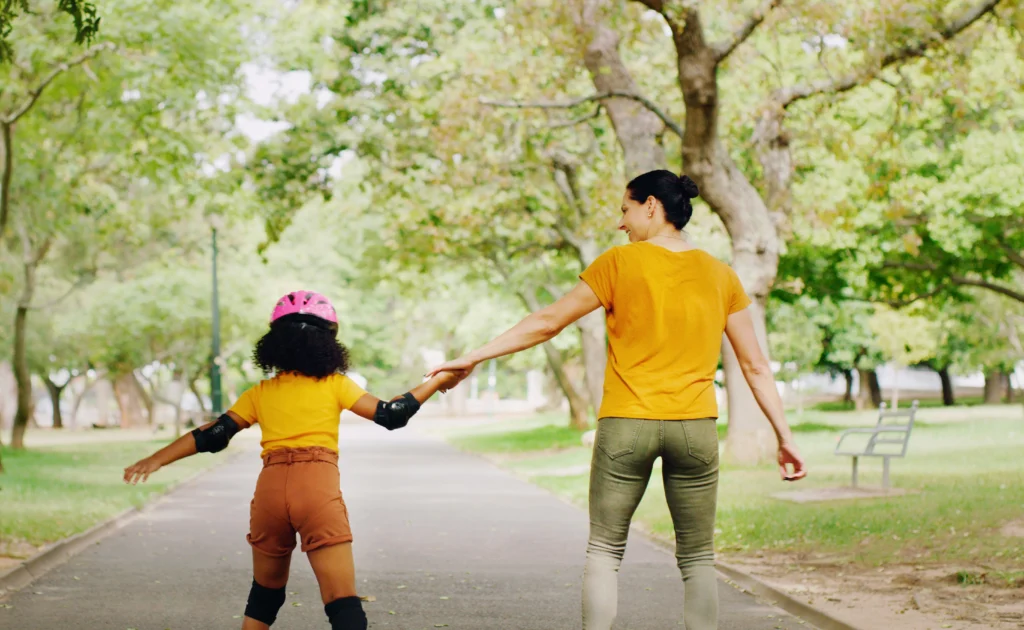
Setting boundaries is an important part of having a healthy relationship and healthy family dynamics, but for many parents this comes with a large amount of shame or guilt when setting and enforcing limits. In a world filled with advice and social pressure on raising a child, it’s easy to think that if you are setting rules or saying “no,” you are being a harsh or unloving parent. However, the conscious parent knows that clear, compassionate boundaries contribute to security, respect, and trust in children, and help children to develop resilience and Emotional Regulation Kids need. Vedangi Brahmbhatt is an experienced Child Development Specialist helping to teach families across the USA how to embrace boundaries without fear or guilt by using mindful parenting strategies. In this blog, learn How to implement conscious parenting techniques at home assertively while being loving and establishing the basis for healthy growth and connection. Recognise Boundaries as Acts of Loving and Caring Setting limits easily lends itself to being viewed as punishment or rejection, when in fact it’s a critical form of nurturing. Boundaries communicate safety and predictability, helping children feel secure. When parents frame limits as acts of protection and love, the guilt that comes with saying “no” lessens. Integrating boundaries into Positive discipline strategies for toddlers helps children understand the “why” behind rules. This approach promotes cooperation over rebellion and supports Holistic Child Development. Practise Nonviolent Communication to Express Boundaries Clearly Clear, empathetic communication is key to setting boundaries without shame. Using Nonviolent Communication techniques, parents can express needs while validating their children’s feelings. This includes calmly stating limits, giving reasons briefly, and offering alternatives. For example, saying, “I want you to be safe, so you need to be in the backyard. Let’s choose some fun toys to play with here,” models respect and offers choice within limits. This helps kids feel heard and reduces power struggles – a true Benefit of mindful parenting for child development. Use Family Meetings and Active Listening Parenting to Build Consensus Including children in discussions of limits through regular Family Meetings promotes ownership and understanding. When kids help set household rules, they’re more likely to respect them. Practising Active Listening Parenting during these discussions enables parents to fully hear children’s perspectives and co-create boundaries aligned with family values. This collaborative process strengthens bonds and minimises guilt parents may feel when imposing limits alone. Conclusion: Boost Your Parenting Power with Compassionate Boundaries Setting boundaries without shame or guilt transforms parenting into a journey of empowerment and love. Clear limits teach safety, responsibility, and Emotional Regulation Kids need for lifelong success. For personalised guidance, consider a consultation with Vedangi Brahmbhatt – an expert in conscious co-parenting and mindful parenting. Her consultations, resources, and even recommendations for the Best Parenting Books offer tools to help families thrive. Don’t forget to follow us on Instagram, and YouTube for ongoing advice and inspiration on Toddler Activities, mindful parenting, and child development. At Vedangi Brahmbhatt, we believe conscious parenting is about boundaries paired with empathy, helping families grow stronger together.
How to Set Boundaries Without Shame or Guilt – A Conscious Parenting Guide
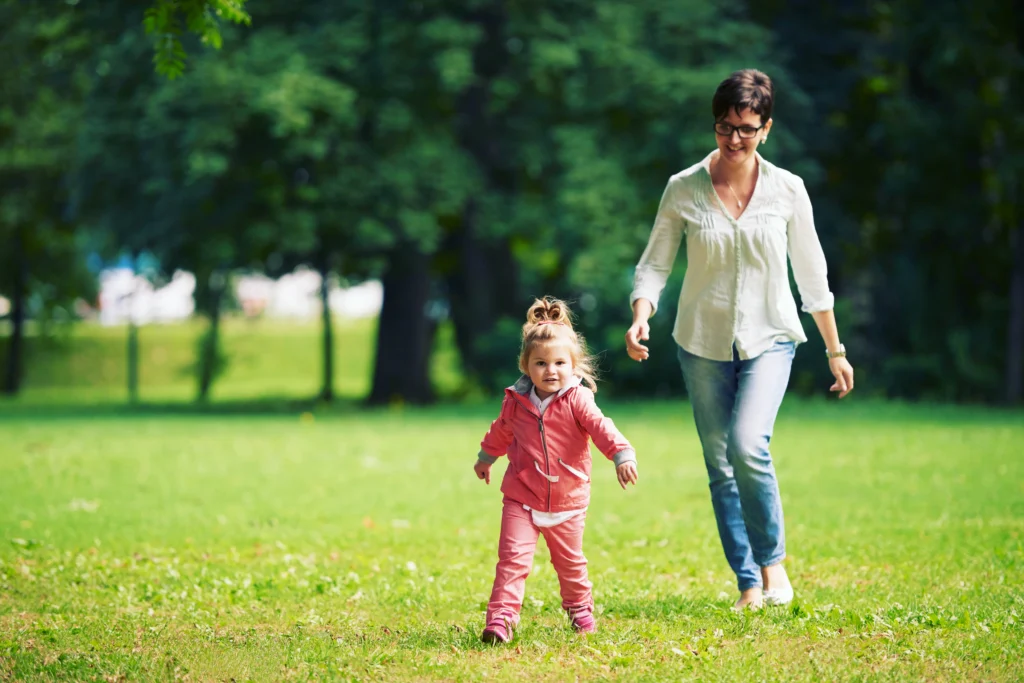
Setting boundaries is an important part of having a healthy relationship and healthy family dynamics, but for many parents this comes with a large amount of shame or guilt when setting and enforcing limits. In a world filled with advice and social pressure on raising a child, it’s easy to think that if you are setting rules or saying “no,” you are being a harsh or unloving parent. However, the conscious parent knows that clear, compassionate boundaries contribute to security, respect, and trust in children, and help children to develop resilience and emotional regulation kids need. Vedangi Brahmbhatt is an experienced Child Development Specialist helping to teach families across the USA how to embrace boundaries without fear or guilt by using mindful parenting strategies. In this blog, learn how to implement conscious parenting techniques at home assertively while being loving and establishing the basis for healthy growth and connection. Recognise Boundaries as Acts of Loving and Caring Setting limits easily lends itself to being viewed as punishment or rejection, when in fact it’s a critical form of nurturing. Boundaries communicate safety and predictability, helping children feel secure. When parents frame limits as acts of protection and love, the guilt that comes with saying “no” lessens. Integrating boundaries into positive discipline strategies for toddlers helps children understand the “why” behind rules. This approach promotes cooperation over rebellion and supports holistic child development. Practise Nonviolent Communication to Express Boundaries Clearly Clear, empathetic communication is key to setting boundaries without shame. Using Nonviolent Communication techniques, parents can express needs while validating their children’s feelings. This includes calmly stating limits, giving reasons briefly, and offering alternatives. For example, saying, “I want you to be safe, so you need to be in the backyard. Let’s choose some fun toys to play with here,” models respect and offers choice within limits. This helps kids feel heard and reduces power struggles – a true benefit of mindful parenting for child development. Use Family Meetings and Active Listening Parenting to Build Consensus Including children in discussions of limits through regular Family Meetings promotes ownership and understanding. When kids help set household rules, they’re more likely to respect them. Practicing Active Listening Parenting during these discussions enables parents to fully hear children’s perspectives and co-create boundaries aligned with family values. This collaborative process strengthens bonds and minimises guilt parents may feel when imposing limits alone. Conclusion: Boost Your Parenting Power with Compassionate Boundaries Setting boundaries without shame or guilt transforms parenting into a journey of empowerment and love. Clear limits teach safety, responsibility, and emotional regulation kids need for lifelong success. For personalised guidance, consider a consultation with Vedangi Brahmbhatt – an expert in conscious co-parenting and mindful parenting. Her consultations, resources, and even recommendations for the best parenting books offer tools to help families thrive. Don’t forget to follow us on Instagram, and YouTube for ongoing advice and inspiration on Toddler Activities, mindful parenting, and child development.
Screen Time + Kids: Conscious Usage of Technology
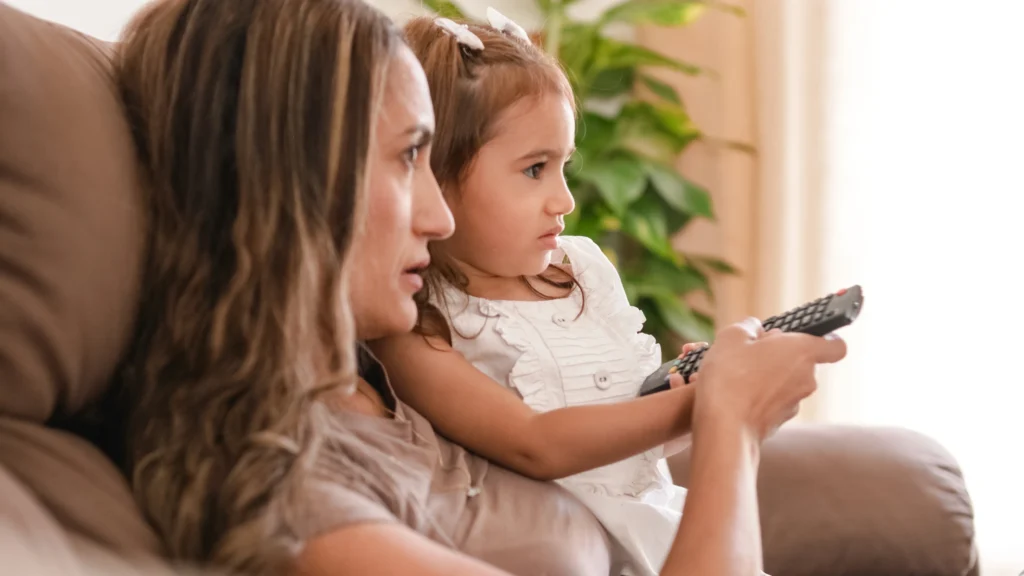
In an electronic age, control of screen time in children is one of the most significant issues amongst parents in the USA. Screen technology has seeped into our lives (through tablets, smartphones, televisions, computers) and it can feel like wading through the sea of their impact on child development. Instead of viewing screens through a lens of limitation and control, the conscious parent embraces a mindful parenting approach to technology that prioritises balance, connection, and thoughtful use. The authoritative Child Development Specialist, and mindful parenting proponent Vedangi Brahmbhatt, advocates healthy screen time as one of the desired results of Holistic Child Development and healthy parent-child bonds. This blog addresses ways in which parents can practically confront screen time in ways that support emotional regulation and good behaviour in children. Prioritise Quality Over Quantity in Toddler Activities and Screen Exposure American Academy of Paediatrics recommends that toddlers have less screen time, but they need to be involved in developmentally appropriate activities. So it’s important that we deliberately reach for high-quality educational and interactive material instead of focusing only on reducing hours. The combination of Toddler Activities that include movement, creativity, and practicality will decrease passive time at the screen and increase active time. Parents are able to create experiences on the screen that are supplemental but not alternatives to physical play and social interaction. Promote Open Conversation with Family Meetings and Active Listening Parenting The use of technology impacts the entire family structure, so dialogue needs to be open. Family meetings organised around technology regulations make them respectful of each other and accountable to each other. At these meetings, parents and children can talk about expectations, benefits, and concerns around screen use. Using Active Listening Parenting methods during these conversations helps parents respond mindfully to children’s experiences with media. This provides a sense of independence for kids, helps build trust, and reduces conflicts around screen time a cornerstone of mindful parenting. Support Emotional Regulation Kids and Holistic Development Around Screen Use Excessive or unregulated screen time may contribute to difficulties in Emotional Regulation Kids often exhibit, such as irritability or distraction. As parents, being good role models of wise technology use, while maintaining consistent structures and limits, provides children with opportunities to practise self-control. The integration of screens into a unified system of Holistic Child Development means balancing digital communication with social skills, creativity, and empathy. The conscious parent also knows when to take breaks from screens to prioritise bonding, play, and family connections in the real world. Conclusion: Being Mindful of Technology to Flourish Families Finding the right balance between screens and children’s well-being requires purpose and empathy. Parents can prepare their toddlers for success in the digital era through prioritisation of quality content, enrichment of Toddler Activities, open Family meetings, Active Listening Parenting, and consistent emotional regulation practices. For personalised guidance, you can reach out to Vedangi Brahmbhatt a Child Development Specialist and expert in conscious co-parenting and mindful parenting. She provides tools and resources that enable you to become the conscious parent your family needs. And remember to subscribe to us on Instagram, and YouTube for more insights into mindful parenting and Holistic Child Development.
No Fear, No Force: Oh My God, Navigating Power Struggles Without Using Fear Or Force: A Conscious Parenting Guide
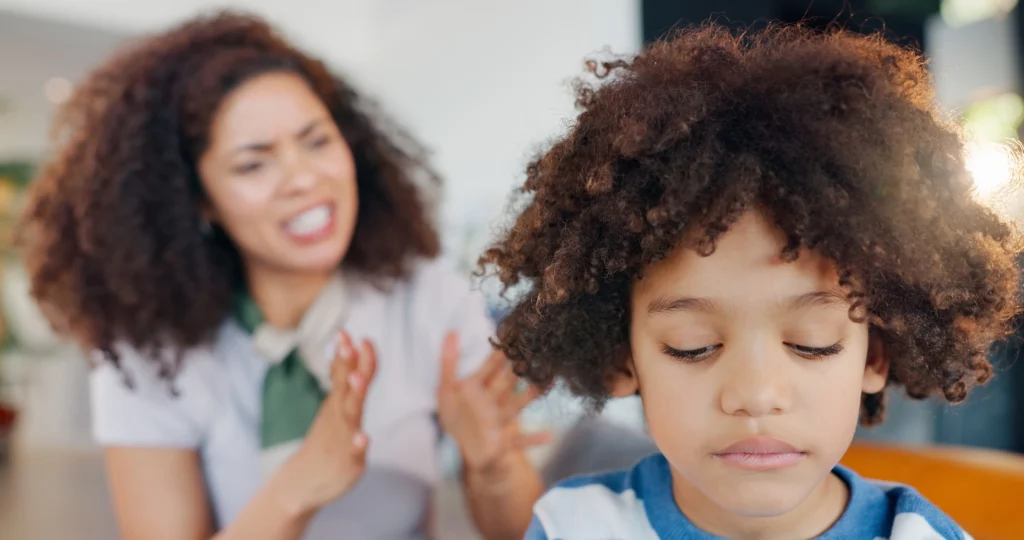
Parent-child power struggles are also some of the most stressful situations in family life. Resistance and boundary testing are normal, especially in toddlerhood and early childhood – but fear or force will only serve to increase conflict and harm trust. Wouldn’t there be a softer, better way? The mindful parent recognises that such situations can become moments of connection, learning, and growth with mindful parenting and respectful strategies. We personally have witnessed how parents in the USA can overcome power struggles without any form of punishment or control strategies at Vedangi Brahmbhatt, a reputable Child Development Specialist, to raise healthy, peaceful families. In this post, you will get some must-have tips on how to help your child grow emotionally and manage within your limits in a graceful and compassionate manner. Embrace Open Communication With Family Meetings and Active Listening Nonviolent dialogue in your family is one of the most powerful tools to prevent and stop power struggles. Family meetings help to create a safe environment where everyone can express their ideas – your toddler counts as well as your teen – when it comes to setting expectations and developing solutions. Active listening parenting has nothing to do with just echoing what your child says. Children don’t feel the need to rebel when they feel truly understood. This creates trust and minimises frustration on both ends, supporting the foundation of mindful parenting. Use Positive Discipline Approaches to Toddlers Positive discipline approaches to toddlers are aimed at teaching behaviour, not punishing. This means setting up routines, offering limited options, and having consequences your child can understand. These practices complement the benefits of mindful parenting on child development, helping children learn responsibility and cooperation without intimidation or coercion. Build Emotional Regulation and Resilience Children are still learning about big feelings. It is important to model emotional regulation skills they require. By staying calm in challenging situations and teaching coping techniques such as deep breathing or naming feelings, parents help children learn essential tools. This child development approach is holistic because not only does it ease power struggles in the short-term, but it also equips children for success in social and emotional aspects of life – all central to becoming a conscious parent. Conclusion: Your Journey in Conscious Parenting Begins Today It is an achievable, realistic, and rewarding goal to navigate power struggles without fear or force. Open communication, positive discipline approaches to toddlers, and emotional regulation help create stronger, more conscious family relationships. To receive individual guidance specific to your family’s needs, schedule an appointment with Vedangi Brahmbhatt, one of the most prominent professionals in conscious co-parenting and mindful parenting. Learn about our programmes and resources that empower you to become the conscious parent. Don’t miss following us on Instagram, and YouTube to find out more about mindful parenting and Toddler Activities that nurture growth. Here’s a quick tip: when tension escalates, pause and take three deep breaths before acting – this reset gives you space to respond with empathy and connection. To view our recent press releases, visit this page.
Deal with Tantrums in a Mindful Way
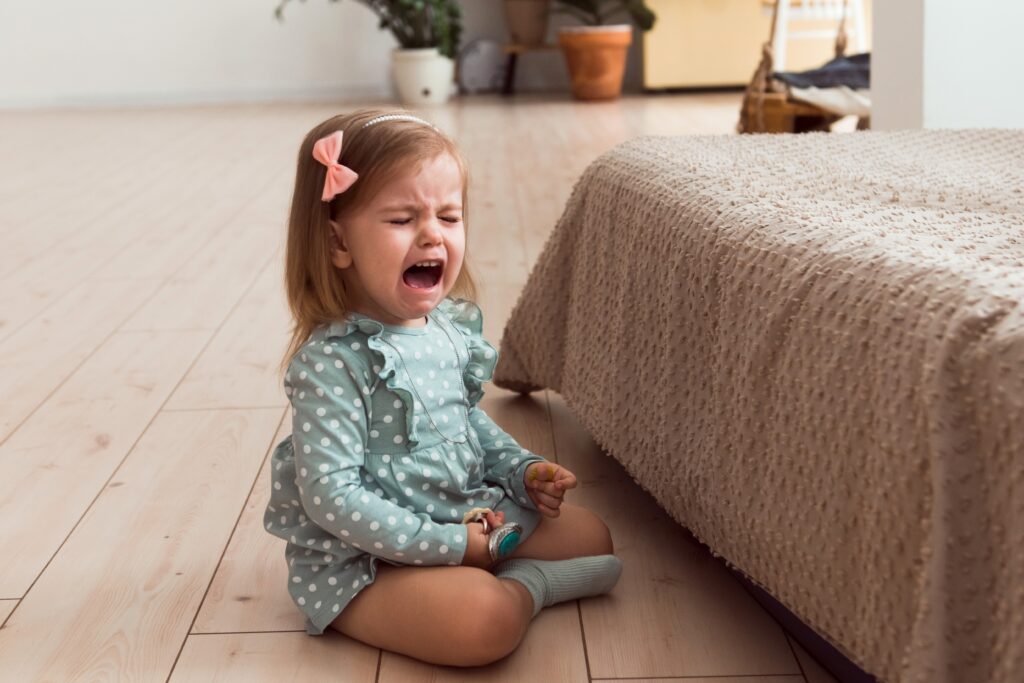
Kids have tantrums; it’s a normal part of growing up. But it can feel overwhelming for both them and you. As a Child Development Specialist, I have met many moms and dads. They ask, “What do I do when my child yells and kicks and cries? “And when it feels like nothing is helping?”.Punishment isn’t the path to helping them grow. It is mindful parenting. This is when you keep your composure and stay connected with your child.You want to understand why they’re so upset. When we pause to see the reason, rather than reacting quickly, we can feel more connected. This can help them feel better. Let’s look at three key steps to help with tantrums. 1. Understand the ‘Why’ Behind the Tantrum Tantrums can be caused for various reasons. A child might be tired or hungry. There may be too much going on. Or they might have complex feelings that they cannot express in words. Instead of calling them “wrong,” try to understand them and make a meaningful decision regarding the situation. A family meeting is a good time to have a conversation with your child. Do it when you are both relaxed. You can say, “Do you know when you were sad today?” Let’s talk about what it was. “We can find a new way to act next time.” This small act is a big help. It teaches emotional regulation. It is a good start to holistic child development. 2. Respond, Don’t React It should be considered wrong to rule out our actions when a child is angry. When your child yells, it’s natural to feel like yelling back, but that makes it worse. So take a few deep breaths. Use active listening parenting. Lower yourself to their level and look into their eyes if they’re open to it. Say something like: “I see you are sad.” I am here for you. Let’s take a breath.” This is a form of nonviolent communication. It helps your child feel seen, safe, and soothed. It shows them how to face complex feelings with no shame or fear. This is a skill for life. If your child is too upset to talk, just be there for them. Let the intense emotions settle. Being calm shows more than words ever could. 3. Prevent Future Tantrums with Connection & Routine Mindful parenting is not only about what you do during a tantrum. It is also for the before and after. Make a strong bond with your child. Have one-on-one time, set some guidelines to perform activities, and do toddler activities. It reassures your child in moments of anger and during times of change. The way you can guide your child is not through punishment. They are through mindful teaching. Some positive discipline strategies for toddlers are: These tools and conscious co-parenting help you to work with your child, not just tell them what to do. If you are together or not, try to talk all the time. Share what you care about. Respect your child’s feelings. These are key parts of the conscious parent’s way of life. Conclusion: Tantrums Are Opportunities for Growth Tantrums can be difficult. They’re not just negative; they can be moments for growth. They are a time to get closer to your child. With mindfulness parenting, we can turn tantrums into times of trust. They can help kids get stronger and help them understand their feelings. Tip: Make a “Calm Corner” in your home. It can be a soft space with pillows, toys, or books from the Best Parenting Books. These things help kids calm down. Show them that this is a space for comfort, not for fear. Don’t forget to see us on Instagram, and YouTube for more good ideas. For any new info, click here to see our recent press releases.Want to know more about how to implement conscious parenting techniques at home? Go to Vedangi Brahmbhatt’s website. You can explore ways to get help, join a class, or see what resources we recommend.
How to Handle Sibling Rivalry with Conscious Parenting
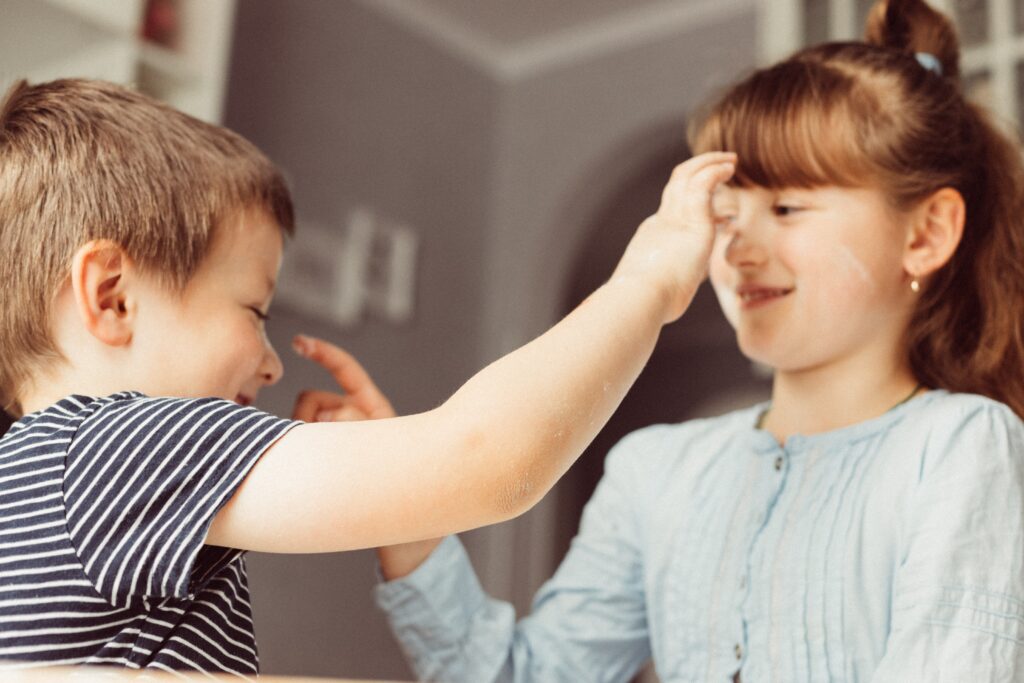
Fights between siblings are a big (and tiring) part of family life. It can be a fight over a toy. It can be a loud yelling match. A lot of parents don’t know when to get in, how to be fair, or how to stop it from getting worse. But here is what I see all the time as a Child Development Specialist These fights don’t mean your children don’t love each other. It shows they’re figuring out how to handle sibling strong emotions with those closest to them, and with the tools of conscious parenting, you can help them develop empathy, speak kindly, and strengthen their bond instead of fighting. Let’s look at how to change these fights into chances for Holistic Child Development through mindful parenting. 1. Don’t Rush to Judge — Show You See Their Feelings First The first thing we want to do as parents is be the judge: “Who did it first?” “Why did you hit him?” But blaming just makes things worse. It can make one child feel unheard. Respond to both with empathy and patience, use Nonviolent Communication to show you see how they feel. Don’t excuse bad and unpleasant behaviour. Try this: “I can see you are both very angry right now. Let’s take a slow breath. Then we can find out what each of you needs.” This small change helps kids feel safe with their feelings. It shows them Emotional Regulation. This is a key part of Holistic Child Development. 2. Use Family Meetings to Build a Close Feel Most of us only talk about our feelings when there’s already a problem, but you can express your feelings each week in the Family Meeting. These planned talks are a great way to use Active Listening Parenting. They give each child a say in the family. You can add easy toddler activities like drawing their feelings or acting out solutions through play. When kids know they can show how they feel in a good way, the bad feelings towards each other will go down over time. Studies say sibling who feel seen and heard at home are kinder to their brothers or sisters. They can learn to resolve disagreements on their own. 3. Teach How to Work Together, Not Just “Share” True sharing develops with maturity; it can’t be forced. Do not just think about what is fair right now. Think about how to make them understand the importance of cooperation. Use Positive discipline strategies for toddlers to show them the way. For example: “Let’s use a timer to take turns with the toy. Then we can talk about how it felt to wait and then to play.” Also, use mindful parenting. See if your feelings about their fights come from your past or stress. When you are calm, your kids learn to be calm in a fight, too. Conclusion: Conscious Co-Parenting for Strong Sibling Ties Fights between sibling aren’t something to fear; they’re part of growing. They are a thing to guide. When we use conscious co-parenting, we stop trying to make kids act a certain way. We try to see why they act that way. We are the conscious parents our kids need. This helps them not just get through the fights, but also do well with their big feelings. Tip: Try a “special time jar.” Let each child pick one thing to do with you each week. This makes their tie to you strong. It cuts down on the fight for your time. Don’t forget to follow us on Instagram, and YouTube for more ideas and help. For new things, click here to see our recent press releases.Are you ready to learn more about how to use conscious parenting techniques at home? Look at our talks for help, our class plans, and some of the Best Parenting Books on the topic at Vedangi Brahmbhatt’s website.

